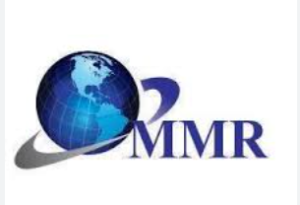In the healthcare ecosystem, urgent care facilities have become an integral part, providing a crucial bridge between emergency rooms and primary care physicians. These clinics offer immediate attention for non-life-threatening conditions and minor injuries, ensuring that patients receive timely care without the prolonged wait times often associated with emergency rooms. Central to the operation and success of these urgent care centers are the doctors who work within them, providing high-quality, accessible medical care.
Understanding Urgent Care
Urgent care centers are designed to provide care for illnesses and injuries that require immediate attention but are not severe enough to warrant a visit to the emergency room. These facilities are typically open beyond regular office hours, including evenings and weekends, making them a convenient option for patients who need prompt medical attention outside of typical business hours.
Conditions commonly treated at urgent care centers include:
Minor fractures and sprains
Cuts and lacerations requiring stitches
Infections, such as ear infections or urinary tract infections
Flu and cold symptoms, including fevers and sore throats
Mild asthma attacks
Minor burns
Urgent care centers also often provide services like X-rays, laboratory tests, and vaccinations, contributing to their role as a comprehensive stop for various medical needs.
The Role of Doctors in Urgent Care
Doctors in urgent care settings play a multifaceted role. They must be adept at quickly diagnosing and treating a wide range of conditions. The nature of urgent care means that physicians often see patients without prior knowledge of their medical history, requiring a high level of diagnostic acumen and versatility.
Rapid Diagnosis and Treatment
One of the primary responsibilities of urgent care doctors is to rapidly diagnose and treat acute conditions. Unlike emergency room doctors, who deal with life-threatening situations, urgent care physicians handle less critical but still pressing medical issues. This requires a keen ability to assess symptoms quickly and accurately to determine the appropriate treatment.
Versatility
Urgent care doctors must be versatile, capable of handling a broad spectrum of medical issues. They may treat a child with an ear infection in one appointment and a middle-aged adult with a sprained ankle in the next. This versatility demands a broad knowledge base and the ability to adapt to various patient needs and conditions swiftly.
Patient Education and Preventive Care
In addition to providing immediate medical treatment, urgent care doctors also play a significant role in patient education. They often provide guidance on managing conditions at home, preventive care tips, and when to seek further medical attention. This educational role is crucial in helping patients understand their health better and preventing future medical issues.
Benefits of Urgent Care Centers
The rise of urgent care centers has brought numerous benefits to the healthcare system and patients alike.
Reduced Emergency Room Burden
By handling non-life-threatening conditions, urgent care centers help reduce the burden on emergency rooms. This allows emergency departments to focus on more critical cases, improving overall healthcare efficiency.
Increased Access to Care
Urgent care centers increase access to medical care, especially during times when primary care physicians are unavailable. This is particularly beneficial for patients who need immediate attention but cannot wait for a regular doctor’s appointment.
Cost-Effective Care
Visits to urgent care centers are generally less expensive than emergency room visits. This cost-effectiveness is advantageous for both patients and the broader healthcare system, helping to reduce unnecessary healthcare expenditures.
Challenges Faced by Doctors in Urgent Care
Despite the many benefits, doctors in urgent care face several challenges.
High Patient Volume
Urgent care centers often experience high patient volumes, especially during peak hours. This can lead to a fast-paced and sometimes stressful work environment. Doctors must maintain a high level of efficiency while ensuring each patient receives thorough and attentive care.
Limited Patient History
Urgent care doctors often see patients without prior knowledge of their medical history. This can complicate the diagnostic process and requires physicians to be particularly skilled in their assessments and to ask the right questions to gather necessary information quickly.
Diverse Range of Conditions
The variety of conditions treated in urgent care means that doctors must stay current with a wide range of medical knowledge. Continuous learning and adaptability are essential to provide high-quality care.
Training and Skills for Urgent Care Physicians
Physicians working in urgent care typically have backgrounds in family medicine, emergency medicine, or internal medicine. This broad training equips them with the skills needed to handle the diverse range of conditions seen in urgent care settings.
Key skills for urgent care doctors include:
Diagnostic Skills: The ability to quickly and accurately diagnose conditions based on limited information is crucial.
Clinical Versatility: Physicians must be able to treat a wide range of conditions across all age groups.
Communication Skills: Effective communication is essential for explaining diagnoses, treatments, and follow-up care to patients.
Stress Management: The fast-paced environment of urgent care requires doctors to manage stress and maintain composure under pressure.
The Future of Urgent Care
The demand for urgent care services is expected to continue growing, driven by factors such as increased healthcare consumerism, longer wait times for primary care appointments, and a growing population with diverse healthcare needs.
Integration with Telemedicine
Telemedicine is increasingly becoming integrated into urgent care. Virtual consultations can provide an initial assessment and guide patients on whether they need to visit an urgent care center in person. This integration enhances accessibility and convenience for patients.
Expansion of Services
Many urgent care centers are expanding their range of services to include more comprehensive care options, such as chronic disease management, occupational health services, and specialized care for conditions like sports injuries. This expansion makes urgent care centers even more versatile and valuable within the healthcare system.
Technological Advancements
Advancements in medical technology, such as improved diagnostic tools and electronic health records, are enhancing the capabilities of urgent care centers. These technologies enable more accurate diagnoses, better patient tracking, and improved overall care quality.
Conclusion
Doctors urgent care centers are essential to providing immediate, high-quality medical care for a wide range of non-emergency conditions. Their ability to rapidly diagnose and treat patients, combined with the accessibility and cost-effectiveness of urgent care centers, makes these facilities a vital component of the healthcare system. Despite the challenges they face, urgent care doctors continue to play a crucial role in ensuring patients receive the care they need promptly and efficiently.
As healthcare continues to evolve, urgent care centers and the doctors who work within them will undoubtedly remain key players in delivering accessible and effective medical care to communities. The ongoing integration of new technologies and services will further enhance their role, ensuring they meet the growing and changing needs of patients.













